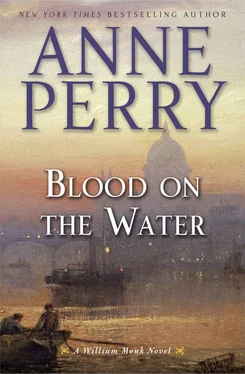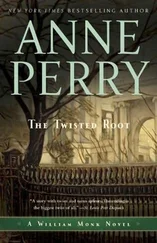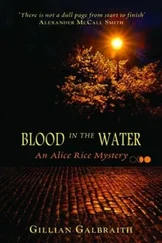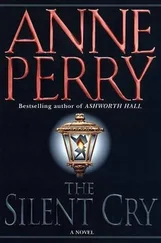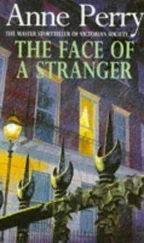Anne Perry - Blood on the Water
Здесь есть возможность читать онлайн «Anne Perry - Blood on the Water» весь текст электронной книги совершенно бесплатно (целиком полную версию без сокращений). В некоторых случаях можно слушать аудио, скачать через торрент в формате fb2 и присутствует краткое содержание. Год выпуска: 2014, ISBN: 2014, Издательство: Random House Publishing Group, Жанр: Исторический детектив, на английском языке. Описание произведения, (предисловие) а так же отзывы посетителей доступны на портале библиотеки ЛибКат.
- Название:Blood on the Water
- Автор:
- Издательство:Random House Publishing Group
- Жанр:
- Год:2014
- ISBN:978-0-345-54844-3
- Рейтинг книги:3 / 5. Голосов: 1
-
Избранное:Добавить в избранное
- Отзывы:
-
Ваша оценка:
- 60
- 1
- 2
- 3
- 4
- 5
Blood on the Water: краткое содержание, описание и аннотация
Предлагаем к чтению аннотацию, описание, краткое содержание или предисловие (зависит от того, что написал сам автор книги «Blood on the Water»). Если вы не нашли необходимую информацию о книге — напишите в комментариях, мы постараемся отыскать её.
Blood on the Water — читать онлайн бесплатно полную книгу (весь текст) целиком
Ниже представлен текст книги, разбитый по страницам. Система сохранения места последней прочитанной страницы, позволяет с удобством читать онлайн бесплатно книгу «Blood on the Water», без необходимости каждый раз заново искать на чём Вы остановились. Поставьте закладку, и сможете в любой момент перейти на страницу, на которой закончили чтение.
Интервал:
Закладка:
“I suppose it is better he find out now.” Juniver pulled his mouth into a tight line. “I assume this is about the Beshara case? You must normally have something better to do on a fine summer Saturday.”
“I’m sorry,” Rathbone said again. “We resume the trial on Monday, and I don’t know how to stretch it out much further. If I were in Pryor’s place, I’d close as soon as possible, while emotions are high and there’s still reasonable doubt. We’ve no motive yet. It’s a mess …”
“What do you want from me? I didn’t get Beshara off.”
Only in that moment did Rathbone perceive how deeply that still wounded Juniver. It was not his own failure that hurt-no lawyer always won-it was the fact that he now knew his client had been innocent, and was already dead, however long he might or might not have lived otherwise. It was not advisable to use that guilt against Juniver, but done well, it would be effective, and Rathbone dared not lose.
He put his leather attaché case on the floor. “I have the trial transcripts here. I spent a good deal of the night going over them several times. I would like very much to go over them again with you, because there are instances that trouble me. I would like your recollection, in case I am reading errors into them that, had I been present, I would realize were not as they seem.”
Juniver frowned. “I was overruled a lot, but I was pretty desperate, and I knew it. I thought the man was guilty.”
“I think everyone did,” Rathbone conceded.
“You didn’t?”
“I was out of the country. I didn’t have an opinion at all. I’m sorry about your day, but a great deal hangs in the balance. It’s the devil of a lot more than simply proving Sabri guilty.”
“I know. Excuse me while I send a message that I cannot come.”
“Of course. Juniver … I’m sorry!”
Juniver smiled. “I’d do the same … I hope.”
A few minutes later he was back again. They went through the entire transcript, Rathbone making notes where York’s judgments could have gone either way. Some of them were above question, some he had ruled for Juniver anyway, but precious few.
With increasing anxiety, Rathbone asked Juniver about each ruling that was against him. He had him look at the transcript and see if it was absolutely accurate, and if he could to recall anything more about the circumstances.
Juniver’s memory was excellent. Very often he could recite what his objection had been and, word for word, what York had ruled. He also remembered the objections Camborne had made, and almost all of them had been upheld.
“There’s a pattern,” Rathbone said finally, rubbing his hands over his eyes. “Taken one by one they all seem reasonable, except the last two. But put together, and including your memory of small remarks not noted, expressions and silences, it amounts to bias, at the very least.”
“It’s only my memory,” Juniver pointed out unhappily. “And when I look at it now, honestly, I didn’t fight as hard as I could have, or would have if I hadn’t believed Beshara was guilty. I’m not proud of that.”
“None of us is proud of our losses,” Rathbone said gently. “Whatever the reason.”
Juniver’s face was pale. “The reason was that I didn’t fight with everything I could think of. I believed he deserved it. He was a nasty man and I disliked him from the beginning. I couldn’t get the vision of those people in the water out of my mind, even though I didn’t see it myself …”
“I imagine the jurors couldn’t either,” Rathbone agreed. “And Beshara may have been involved, on the periphery. The law is the question, and what pressures were brought to bear.” He smiled, but his eyes did not waver from Juniver’s, and it was the younger man who lowered his gaze first.
Juniver breathed in and out slowly. “Are you speaking of York?” he asked.
“Do you know if I’m right?” Rathbone countered. “Or suspect it?”
“Suspect,” Juniver said immediately. Then, quite clearly, he regretted having not been more evasive. “At least … I wondered. It may have been no more than an emotional revulsion to the crime. It would be natural to be outraged. In fact, how could you not be?”
“We are all offended by crime,” Rathbone answered. “Some more than others, of course. Violence is frightening; extreme violence is extremely frightening. We appoint judges because we believe they have the strength and the wisdom to separate their personal fears or weaknesses from the facts of the case. Lawyers who prosecute or defend are allowed to be as passionate as they wish. Judges are not … as I know, to my cost.” He saw Juniver’s face and immediately wondered if he had been wise to make the remark. Perhaps he had temporarily forgotten Rathbone’s fall from grace. It could have been profoundly inopportune to remind him.
“We are all vulnerable,” Juniver replied, lowering his eyes. “We want justice as we see it. We want to be heroes. We want to be on the side of right. And a good few of us want to climb on up the ladder as well …” He stopped. Then he added as if it were an afterthought, “And some of us want to earn favors of certain people.”
That was what he had been meaning to say. Rathbone knew it as surely as if he had spoken of nothing else. He did not need to ask if he were referring to York. What did York want? To rise to the Supreme Court or the House of Lords? Not lord chief justice, surely? He had neither the brilliance nor the reputation among his peers for that.
Rathbone looked at Juniver again. Had the Beshara case really been big enough to build a reputation from which to reach for that? Or was York deluding himself? Perhaps Rathbone should have read more of the newspapers from the time of the sinking; then he would have understood the mood better.
“Is York in line for the next high office vacant?” he asked Juniver. Answers winged through his mind: York as lord chief justice, smiling under his white wig, nodding as he spoke with the prime minister, bowing before the queen. He saw Beata behind him, watching. Even if she just affected to be proud to be his wife, his heart ached for her. If she really was proud, because she had no idea the price York had paid for the honor, Rathbone was hurt as if with a raw wound. And if she knew the price, and did not care, then the pain within him was intolerable.
Had his tragedy with Margaret so warped his belief in people, and in his own judgment, that he trusted nothing anymore? He should not allow her to do that to him! No, that was not strictly fair: He was doing it to himself. Blaming others was what had driven them apart, the refusal to accept the truth because it hurt.
He forced himself back to the issue.
“It began as minor error,” he said to Juniver. “But it looks to me as if he compounded it until it moved into the realm of something that would be cause for reversal in an ordinary trial for theft or assault. No one is going to reverse Beshara’s conviction, because of the horror of the crime. York will have known that, as will Camborne. But is there anything here, looking at it now with the knowledge that Beshara was innocent, that could be viewed as corruption?”
Juniver’s eyes widened. “You’d accuse York of corruption?”
“If there are grounds,” Rathbone replied. “Wouldn’t you?” Then instantly he changed his mind. He had been willfully insensitive. “If it is necessary, I will. I have nothing to lose anyway, and more chance of presenting it successfully. If it came to that.”
“Bring down York?” Juniver said in little more than a whisper. “Because of the Beshara trial?” There was more than doubt in his voice; there was the weight of all he must know about Rathbone’s own trial over which York had presided, and he might even guess what else lay between them.
Читать дальшеИнтервал:
Закладка:
Похожие книги на «Blood on the Water»
Представляем Вашему вниманию похожие книги на «Blood on the Water» списком для выбора. Мы отобрали схожую по названию и смыслу литературу в надежде предоставить читателям больше вариантов отыскать новые, интересные, ещё непрочитанные произведения.
Обсуждение, отзывы о книге «Blood on the Water» и просто собственные мнения читателей. Оставьте ваши комментарии, напишите, что Вы думаете о произведении, его смысле или главных героях. Укажите что конкретно понравилось, а что нет, и почему Вы так считаете.
